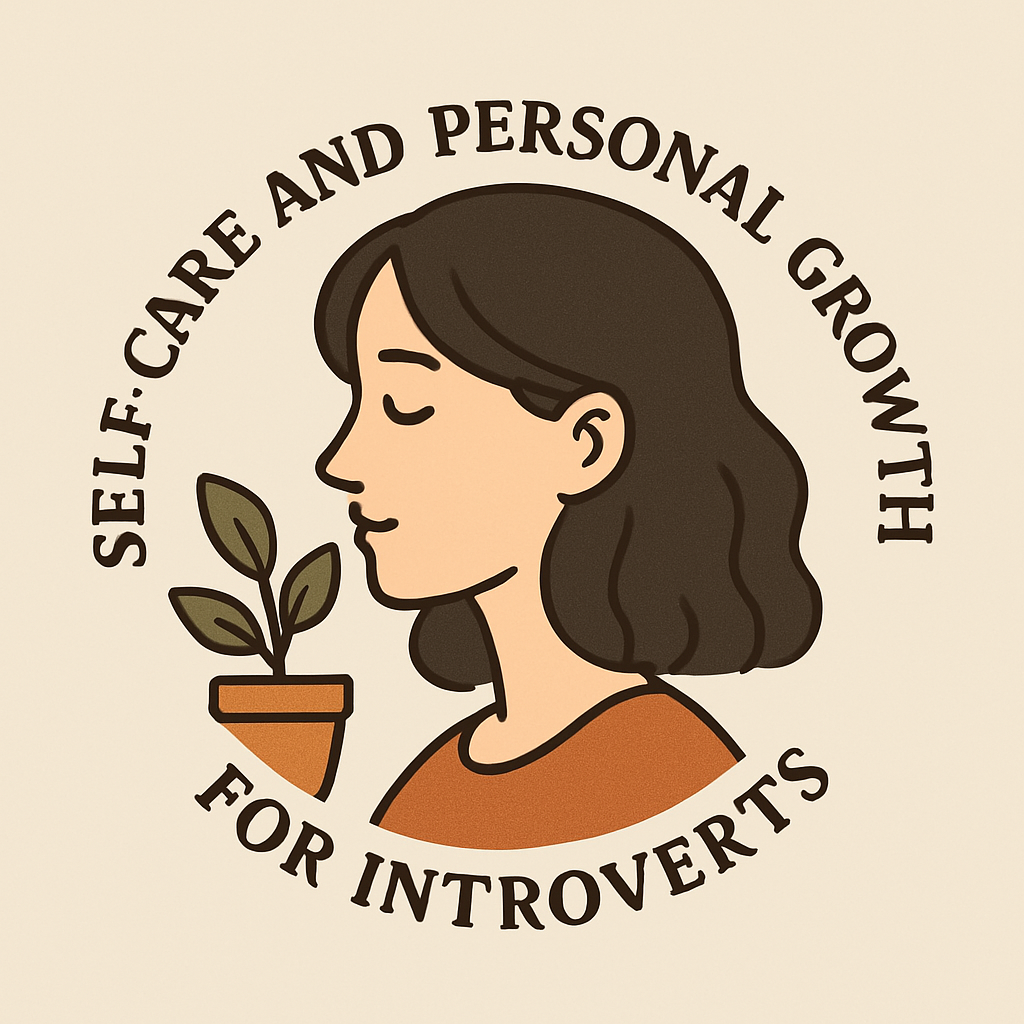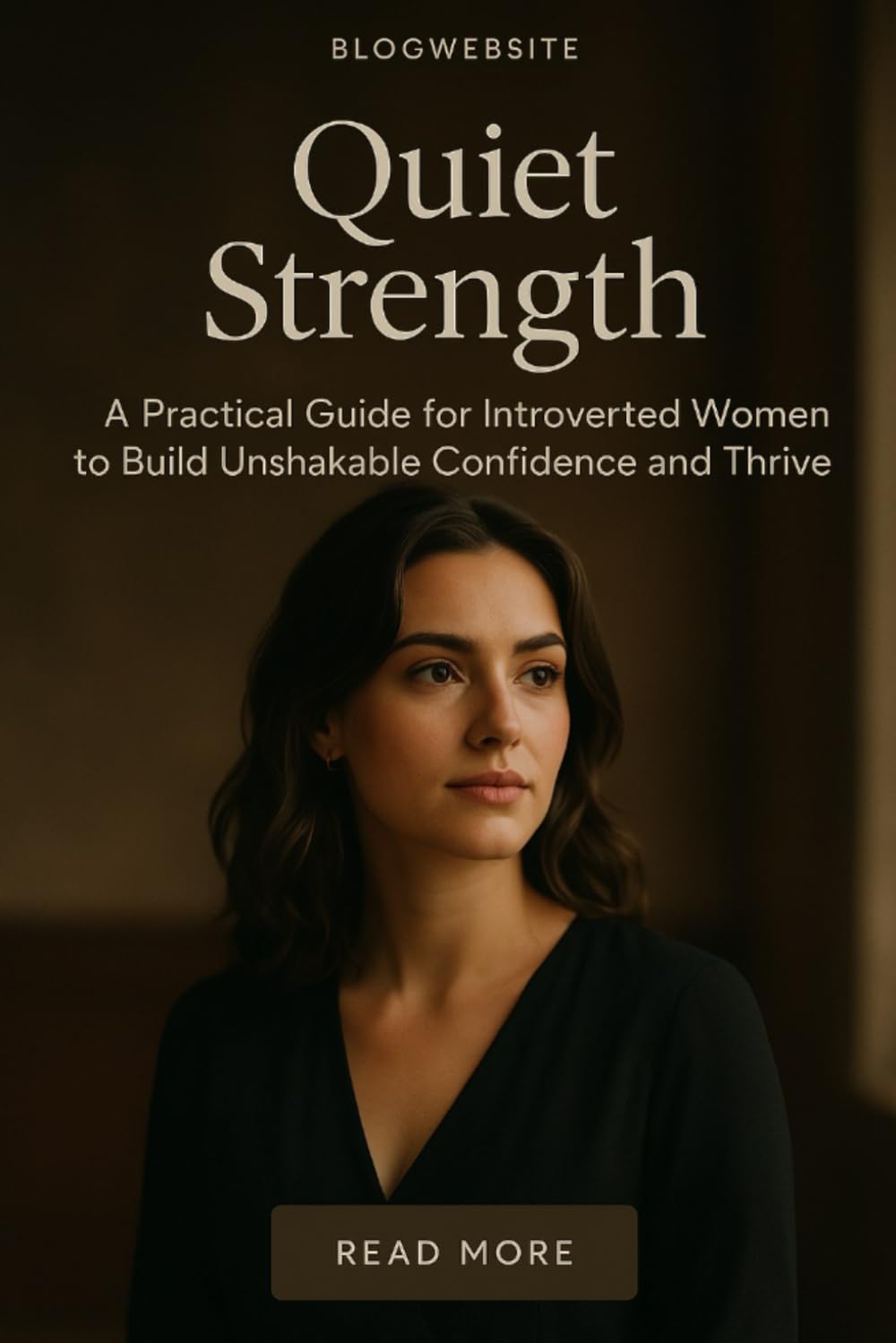The Introverted Woman's Gentle Guide to Setting Boundaries (and Releasing the Guilt!)

Hello, fellow quiet soul. If you identify as an introverted woman, you likely understand the unique dance between needing connection and cherishing solitude. You thrive in calm environments, process things deeply, and find your energy replenishes best away from the constant hum of the external world. But in a society that often rewards extroversion, navigating social expectations and personal needs can feel like walking a tightrope. One of the most challenging, yet crucial, skills we can cultivate is setting boundaries.
Does the thought of saying "no" fill you with dread? Do you often find yourself agreeing to things that drain you, only to feel resentful or exhausted later? Do you worry about disappointing others or being perceived as difficult? If so, you're not alone. Many introverted women grapple with this, often tied to a deep-seated desire for harmony or societal conditioning.
This guide is for you. It’s a gentle exploration of how to set boundaries as an introverted woman, focusing not just on the 'how,' but also on releasing that heavy cloak of guilt that often accompanies prioritizing ourselves. We'll delve into why boundaries are vital self-care, practical ways for saying no without guilt (especially as a female introvert!), and even touch upon networking strategies for quiet women that honour your energy. Let's begin this journey towards reclaiming your peace and power, gently.
Why Boundaries are Non-Negotiable Self-Care for Introverted Women
First, let's reframe boundaries. They aren't walls to keep people out; they are loving fences you build to protect your inner garden – your precious energy, time, and emotional well-being. For introverts, whose energy is primarily drained by external stimuli (like social interaction, noise, or high-pressure environments), boundaries are not a luxury; they are essential for functioning well and avoiding burnout.
Think about it:
- Energy Preservation: Social events, constant demands, and even prolonged small talk can deplete an introvert's energy reserves quickly. Boundaries help you conserve energy for what truly matters to you.
- Preventing Overwhelm: Introverts often process information deeply. Too much input can lead to feeling overwhelmed, anxious, or shut down. Boundaries act as filters, allowing you to manage the flow of external demands.
- Authenticity: Saying yes when you mean no leads to resentment and a feeling of inauthenticity. Honouring your limits allows you to show up as your true self.
- Mental Peace: Constantly pushing past your limits creates internal stress. Boundaries cultivate inner calm and reduce anxiety associated with over-commitment.
Understanding why you need boundaries is the first step in learning how to set boundaries as an introverted woman effectively. It shifts the perspective from selfishness to necessary self-preservation and respect.
Identifying Your Needs: Listening to Your Inner Introvert
Before you can set boundaries, you need to know what they are. This requires self-reflection and tuning into your internal cues.

Ask yourself:
- What drains my energy the most? (Specific people, types of activities, environments?)
- What activities or interactions leave me feeling energized or content?
- When do I start feeling resentful, irritable, or overwhelmed? (These are often signs a boundary has been crossed or is needed, sometimes because we're feeling misunderstood or haven't communicated our needs.)
- How much social interaction feels good before I need downtime?
- What are my non-negotiables for rest and recharge?
- Where do I feel pressured to say 'yes' when I want to say 'no'? (Work, family, friendships?)
Be honest and compassionate with yourself. There are no right or wrong answers, only what’s true for you. Your needs might involve limiting social outings per week, declining extra projects at work when your plate is full, needing quiet time after a busy day, or protecting your weekends for rest.
The Gentle Art of Saying No Without Guilt (Specifically for the Female Introvert)
This is often the hardest part, especially for women who may have been socialized to be accommodating and agreeable. The fear of conflict, disappointing others, or being seen as "not nice" can be overwhelming. Here’s how to approach saying no without guilt as a female introvert:
Keep it Simple & Direct (But Kind)
You don't owe lengthy explanations. A simple, polite refusal is often enough.
- "Thank you so much for the invitation, but I won't be able to make it."
- "I appreciate you thinking of me for this project, but my schedule is full right now."
- "I need some downtime this weekend, so I'll have to pass this time."
- "That doesn't align with my priorities at the moment, but thank you."
Buy Yourself Time
If you feel pressured on the spot, give yourself space to respond.
- "Let me check my calendar and get back to you."
- "I need to think about that. Can I let you know by [time/day]?"
- "I need to see how my energy levels are closer to the date."
Offer an Alternative (If You Want & Can)
This can soften the 'no' if appropriate, but only offer what you can genuinely commit to.
- "I can't make the party, but I'd love to catch up for coffee next week."
- "I can't take on the whole project, but perhaps I could help with [specific, smaller task]?"
- "I can't chat now, but would [later time] work?"
Acknowledge Their Perspective
Show you understand their request, even if you decline.
"I understand you need help with this, and I wish I could, but I'm unable to right now."
Remember: "No" is a Complete Sentence
You don't have to justify your decision, especially when protecting your well-being.
Releasing the Guilt: Permission to Prioritize Yourself
Okay, you've said no. Now comes the potential wave of guilt. This is where the inner work happens.

Challenge the Guilt
Ask yourself: Is this guilt truly warranted? Am I responsible for managing everyone else's feelings or workload? Is prioritizing my well-being actually selfish, or is it necessary?
Reframe the Narrative
Instead of "I'm letting them down," try "I'm honouring my needs so I can show up better elsewhere," or "Setting this boundary allows me to maintain my energy and prevent burnout."
Affirm Your Right
Use affirmations. "It is okay to prioritize my peace." "My needs are valid." "Setting boundaries is an act of self-respect." (These affirmations are powerful tools for building authentic confidence.)
Focus on the Long-Term
Remind yourself why you set the boundary. Saying no to this one thing allows you to preserve energy for things (or people) that are more important or fulfilling, or simply allows you the rest you need to function. This conscious choice helps combat the societal pressure to always be 'doing,' a pressure often linked to the fear of missing out (FOMO), which you can learn more about here.
Practice Self-Compassion
Be kind to yourself. Learning to set boundaries and manage guilt is a process. Some days will be easier than others.
Remember, every time you successfully navigate saying no without guilt as a female introvert, you strengthen that muscle and reinforce your self-worth.
Boundaries in Action: Networking Strategies for Quiet Women
Networking often feels like an introvert's nightmare – large rooms, loud conversations, pressure to perform. But it doesn't have to be! Applying boundaries here is key. These networking strategies for quiet women focus on sustainable, authentic connection:
- Quality Over Quantity: Forget working the whole room. Focus on having one or two meaningful conversations. Introverts often excel at deeper connections.
- Choose Your Arenas: Opt for smaller events, workshops, or panels where interaction is more focused. Online networking (LinkedIn, niche communities) can also be less draining.
- Go Prepared: Have a few conversation starters or questions ready. Knowing what you want to achieve (learn something specific, meet someone in a particular field) can provide focus.
- Set Time Limits: Decide beforehand how long you'll stay. Give yourself permission to leave when your energy dips, even if it's earlier than others. "I need to head out now, but it was great talking with you. Here's my card/Let's connect on LinkedIn."
- Schedule Recovery Time: If you attend an event, block out downtime afterwards to recharge. Don't schedule back-to-back draining activities.
- One-on-One Focus: Suggest coffee chats or brief virtual meetings instead of large group events. This plays to introverted strengths.
- Boundary Setting in Follow-Up: You don't have to respond instantly or agree to every follow-up request. Prioritize connections that feel mutually beneficial and genuine. It's okay to politely decline meetings that don't align with your goals.
By setting boundaries around networking – controlling the environment, duration, and intensity – you can build professional connections without sacrificing your well-being.
Maintaining Your Boundaries: Consistency Creates Respect
Setting a boundary once is a great start, but maintaining it is where the real transformation happens.
- Be Consistent: People learn how to treat you based on what you allow. If you sometimes enforce a boundary and sometimes let it slide, it sends mixed messages.
- Expect Pushback (Sometimes): Some people may be surprised or test your limits, especially if they're used to you always saying yes. Stay firm but polite. Repeat your boundary if necessary ("As I mentioned, I'm not available then").
- Re-evaluate Regularly: Your needs might change. Periodically check in with yourself – are your current boundaries still serving you? Do they need adjustment?
- It's Okay to Renegotiate: If circumstances change, you can adjust a boundary. The key is doing it consciously, not out of guilt or pressure.
Your Gentle Path Forward
Learning how to set boundaries as an introverted woman is a profound act of self-care and personal growth. It's about honouring your unique energy, protecting your peace, and building healthier relationships – with others and with yourself. Releasing the guilt associated with saying no is perhaps the most liberating part of this journey.
Start small. Choose one area where you'd like to implement a gentle boundary this week. Notice how it feels. Celebrate the small wins. Remember, this isn't about being difficult; it's about being authentic and sustainable. You deserve to live a life that honours your introverted nature, filled with peace, purpose, and the energy to pursue what truly lights you up.
(Optional Call to Action): What's one small boundary you can set this week? Share your thoughts or challenges in the comments below – let's support each other on this journey!
(Suggested Internal Link: If you found this helpful, you might also like our post on [Link to another relevant article, e.g., "Managing Social Anxiety as an Introvert" or "Creating Your Ideal Introvert-Friendly Workspace"])

